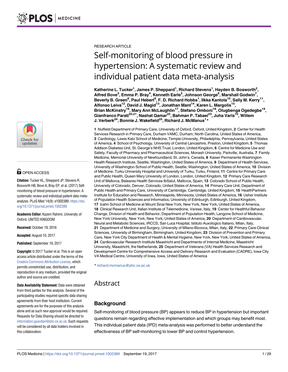Introduction
Imagine you’re a student aspiring to attend one of the top universities in the USA, hoping to secure scholarships to fund your education, or planning to apply for graduate school.
In all these scenarios, one common factor plays a crucial role: your Grade Point Average (GPA). But what exactly is GPA, and why does it hold such significance in your academic journey?
In this article, we’ll dive deep into the world of GPA, exploring its definition, calculation, and the various ways it can impact your future.
What is GPA?
GPA, or Grade Point Average, is a numerical representation of a student’s academic performance. It is calculated by assigning a point value to each letter grade earned in a course and then averaging those points across all courses taken. The most common grading scale in the United States uses a 4.0 system, where an A is worth 4 points, a B is worth 3 points, a C is worth 2 points, a D is worth 1 point, and an F is worth 0 points.
There are two main types of GPA: weighted and unweighted. An unweighted GPA treats all courses equally, regardless of their difficulty. In contrast, a weighted GPA gives higher point values to more challenging courses, such as Advanced Placement (AP) or International Baccalaureate (IB) classes. This allows students who take more rigorous courses to earn higher GPAs.
GPA can be calculated on a semester basis or as a cumulative average. A semester GPA only takes into account the grades earned during a single semester, while a cumulative GPA represents a student’s overall academic performance throughout their entire educational journey.
Why Does GPA Matter?
GPA is more than just a number; it is a powerful indicator of a student’s academic prowess and dedication to their studies. Here are some key reasons why GPA is so important:
1. Scholarships and Financial Aid: Many scholarships and financial aid packages, both merit-based and need-based, use GPA as a primary criterion for eligibility. Students with higher GPAs are more likely to secure valuable scholarships and financial aid, reducing the financial burden of higher education. To learn more about scholarships and financial aid available for college students, check out our article on scholarships. 2. University Admissions: Top universities in the USA and around the world often have highly competitive admissions processes. A strong GPA is essential for standing out among the thousands of applicants vying for limited spots. To explore some of the best universities in the United States, read our article on top universities in the USA. 3. Graduate School Applications: If you’re considering pursuing a master’s or doctoral degree, your GPA will play a significant role in your application. Graduate schools often have strict GPA requirements, and a higher GPA can give you a competitive edge. For more information on the GPA needed for grad school, refer to our article “What GPA Do You Need to Get into Grad School?” 4. Employment Opportunities: While not all employers request GPA information, some companies, particularly in competitive fields like finance or engineering, may use GPA as a screening tool for entry-level positions. A strong GPA can demonstrate your ability to learn, work hard, and achieve goals, making you a more attractive candidate.

Factors That Affect GPA
Several factors can influence a student’s GPA, both positively and negatively:
1. Course Difficulty: Challenging courses, such as advanced math or science classes, may be more difficult to earn high grades in, potentially lowering a student’s GPA. 2. Study Habits and Time Management: Students who develop effective study strategies and manage their time well are more likely to perform better academically and maintain a higher GPA. 3. Extracurricular Activities: Balancing schoolwork with extracurricular activities, such as sports, clubs, or volunteering, can be challenging. Overcommitting to activities outside of academics may lead to a lower GPA. 4. Personal Challenges: Students facing personal difficulties, such as family issues, health problems, or financial struggles, may find it harder to focus on their studies, potentially affecting their GPA.
Strategies to Improve GPA
If you’re looking to boost your GPA, consider implementing these strategies:
1. Set Goals and Create a Study Plan: Establish clear academic goals and develop a structured study schedule to help you stay on track and prioritize your coursework. 2. Seek Help from Professors and Tutors: Don’t hesitate to reach out to your professors during office hours or seek assistance from tutors if you’re struggling with a particular subject. 3. Prioritize Assignments and Deadlines: Stay organized and prioritize your assignments based on their due dates and importance. This will help you manage your workload effectively and avoid last-minute stress. 4. Maintain a Healthy Work-Life Balance: Make time for self-care, socializing, and relaxation to prevent burnout and maintain a positive attitude towards your studies.
When GPA Isn’t Everything
While GPA is undeniably important, it’s not the only factor that matters in your academic and professional journey. Many colleges and universities adopt a holistic evaluation approach, considering factors beyond GPA, such as:
1. Extracurricular Activities: Engaging in clubs, sports, or community service demonstrates leadership, teamwork, and time management skills. 2. Personal Growth and Development: Overcoming challenges, learning from failures, and demonstrating resilience can be just as valuable as academic achievements. 3. Unique Talents and Experiences: Highlighting your individual strengths, such as artistic abilities, entrepreneurial ventures, or multicultural experiences, can help you stand out from other applicants.

Final Thoughts
In conclusion, GPA is a critical component of your academic profile, influencing your eligibility for scholarships, admissions to top universities, graduate school applications, and even employment opportunities. By understanding the factors that affect GPA and implementing strategies to improve it, you can set yourself up for success in your educational and professional endeavors.
However, remember that GPA is not the sole determinant of your worth or potential. Embrace a well-rounded approach to your education, focusing not only on academic excellence but also on personal growth, extracurricular involvement, and the development of unique skills and experiences.
FAQs
1. What is a good minimum GPA to maintain? A good GPA varies depending on your goals and the institutions you’re targeting. Generally, a GPA of 3.0 or higher is considered good, while a 3.5 GPA or above is often seen as excellent. 2. Can I get into college with a low GPA (e.g., 2.0 or below) and without good grades? Yes, it is possible to get into college with a low GPA and without good grades. Some colleges have more flexible admissions policies and may consider other factors, such as test scores, essays, and extracurricular activities. Additionally, attending a community college and transferring to a four-year institution later can be an alternative path for students who may not have maintained good grades throughout high school. 3. How can I calculate my GPA? To calculate your GPA, follow these steps: a. Convert each letter grade to its corresponding grade point (e.g., A = 4, B = 3, etc.). b. Multiply each grade point by the number of credits for that course. c. Add up all the grade points earned. d. Divide the total grade points by the total number of credits attempted. 4. Are there any colleges that don’t consider GPA in their college admissions process? While most colleges consider GPA as part of their college admissions process, there are some institutions that have test-optional or GPA-optional policies. These colleges may place more emphasis on other factors, such as essays, interviews, or portfolios, rather than focusing solely on a student’s high GPA or college GPA. However, it’s essential to research each college’s specific admissions requirements to understand how much GPA matters in college admissions for that particular institution. Keep in mind that even if a college has a GPA-optional policy, maintaining a strong overall GPA throughout high school and college can still be beneficial for scholarships, internships, and future career opportunities.
External References:
1. “It’s not just about your GPA” – CollegeData 2. “What Is a Good GPA in College? In High School?” – BestColleges









